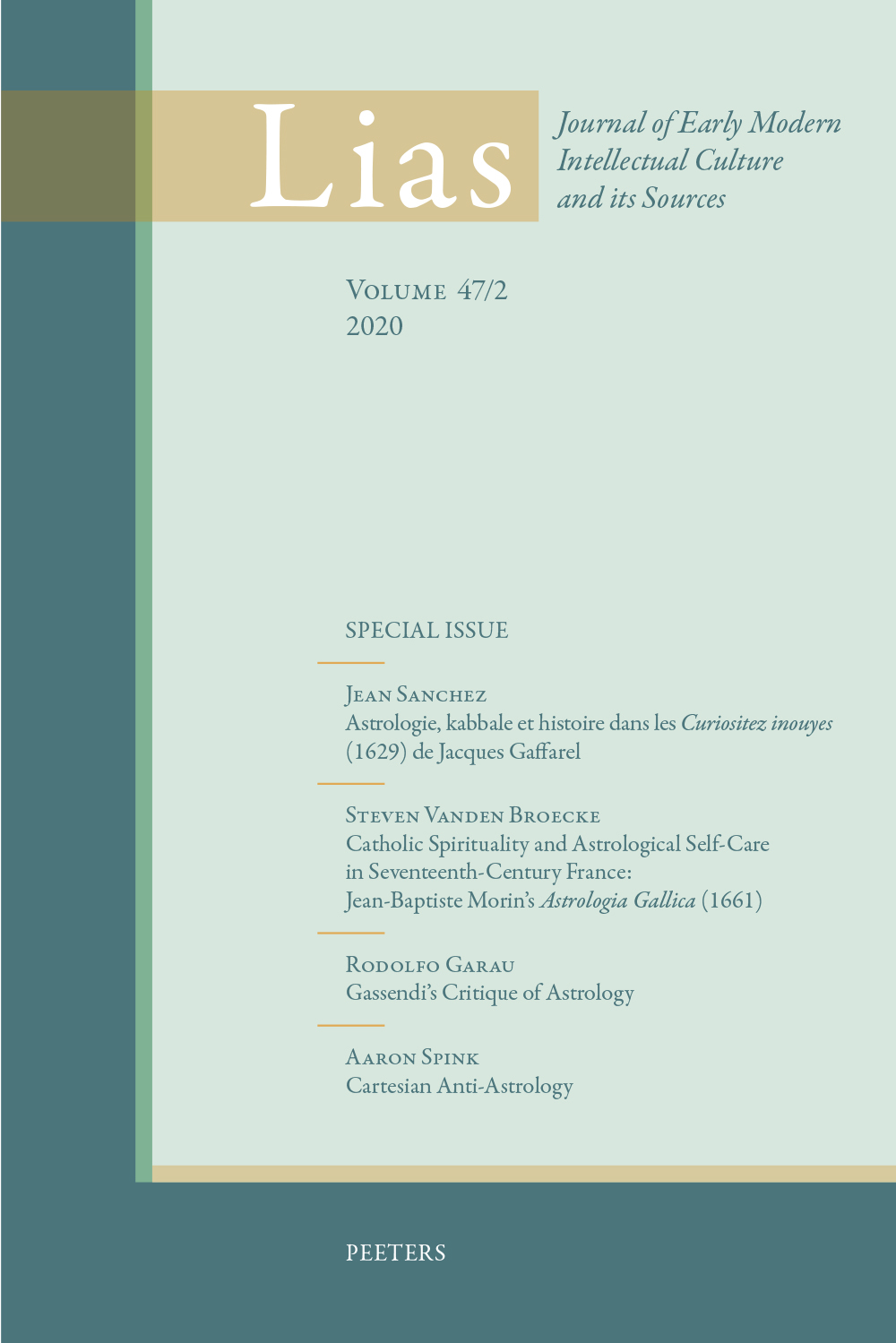 previous article in this issue previous article in this issue |

Preview first page |
Document Details : Title: Cartesian Anti-Astrology Author(s): SPINK, Aaron Journal: Lias Volume: 47 Issue: 2 Date: 2020 Pages: 175-194 DOI: 10.2143/LIAS.47.2.3289803 Abstract : Descartes and his early followers were widely seen to be enemies of superstition and the occult. This was particularly visible in the Cartesian movement’s antagonism to astrology. However, why Descartes and his early followers were so pitted against astrology is less than clear given the flexibility afforded to them through their system of philosophy and various mechanical explanations. Claude Gadroys (1642-1678), for example, produced a short treatise that provided a mechanical explanation consistent with Cartesian physics to allow for celestial influence on Earth. In doing so, he exposed a contradiction in Cartesian vortex theory that seemed to disallow any such influence. In this way, Gadroys brought against himself and then dispelled one of the strongest objections to a Cartesian astrology. Oddly, no other Cartesian relied on principles specific to Cartesianism to argue against astrology as a legitimate science. This paper’s goal is to give a survey of some of the most prominent anti-astrological influences on Descartes, as well as some of the most prominent anti-astrological Cartesians in the second half of the 17th century. In doing this, I hope to show two things. First, in mainstream Cartesianism of the period, the anti-astrological sentiment was in no way part of the debate surrounding Descartes’ philosophy. Instead, ‘Cartesian’ anti-astrological arguments were based on well-worn arguments with an emphasis on experimental difficulties in establishing an astrological science. Second, the explanation for the curious lack of distinctly Cartesian anti-astrological arguments reflects an inherent flaw in Cartesianism; namely, it lacked the theoretical tools to completely rule out ‘occult’ sciences such as astrology. |
|


